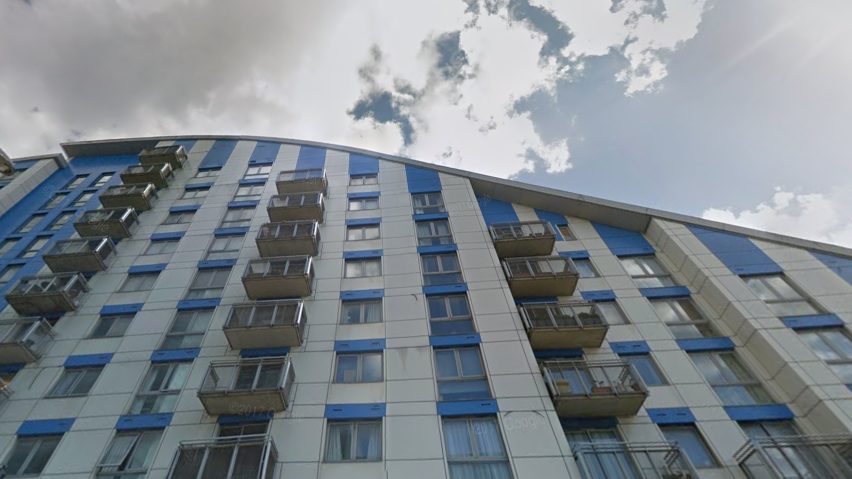
Fire-risk tower residents told to pay £2 million to replace Grenfell-style cladding
Residents of a high-rise housing block in London's Croydon have been told they must pay to replace the building's cladding, which was found to be flammable in a review following the Grenfell Tower fire.
Cladding on the Citiscape complex in the south London town failed final system combustibility testing by the Building Research Establishment in August 2017, prompting the ministry of housing, communities and local government to advise its removal.
The test was one of hundreds carried out on tall buildings across the UK after 71 people died in the devastating Grenfell Tower fire, which spread rapidly thanks to the aluminium, combustable-core panels affixed to its concrete frame.
However Citiscape's private owners have refused to cover the £2 million needed to replace the unsafe cladding, claiming that the leases for all apartments state that leaseholders are responsible for shared building costs.
Residents told they must each pay £31,100
Citiscape's freehold is owned by Proxima GR Properties, a company held in the family trust of multimillionaire Vincent Tchenguiz.
The British-Iranian entrepreneur is estimated to have a combined net worth of £850 million with his brother and business partner Robert. Along with the reported 300,000 freeholds he owns, including 15,000 in London, the property magnate is well known for his love of supercars and yachts.
In one interview he claimed to have "forgotten" that he bought a Lamborghini, having shut it away in a garage just two days after buying it – but not before causing £30,000 of damage crashing it into a speed bump. And in early 2017 he bought a yacht that was estimated to have cost £20 million.
Residents of Citiscape's 93 apartments were told by FirstPort, which manages the property on behalf of Proxima GR Properties, that each home was liable to pay £31,100 to cover the cost of the new cladding.
The average annual salary in Croydon is £34,098, and many of the apartment residents claim they either earn less than that or are retired.
Delays could cause further cost increases
FirstPort commissioned the surveyor that estimated the cost of the cladding replacement. The works are expected to cost between £1.8 and £2 million.
But the property manager has also warned that any delay to the funds being raised to undertake the work will lead to increased costs, as until the cladding is stripped, London Fire Brigade-mandated wardens must patrol the building at all hours.
“As the property manager, we are discharging our responsibilities under the leasehold agreements and working with residents as closely as possible to find a solution to this very complex situation," FirstPort said in a statement.
“The government has pledged to offer support to owners and residents of high-rise buildings. However, given the pressing need to undertake these essential safety works and the potential costs to leaseholders, we and others in the property industry welcome any clarity the government can provide on what support will be made available.”
Landlords should not pass on costs, says government
A spokesperson for the Ministry of Housing, Communities and Local Government told Dezeen: "Keeping people safe in their homes is paramount. We are clear we want to see private sector landlords follow the lead of the social sector and not pass on the costs of essential safety measures to leaseholders."
According to The Guardian, 262 towers across the UK were found to have faulty cladding in the wake of the Grenfell tragedy.
FirstPort is taking the question of who should foot the bill to a tribunal on 6 February, which its claims is not in conflict with the residents but an attempt to obtain an independent ruling on the situation.
Government could offer interest-free loans
Nigel Glen, chief executive officer of the Association of Residential Managing Agents (ARMA) doesn't believe that landlords should be liable to cover the cost of removing and replacing cladding that has failed fire tests.
"In the absence of alternative funding, it is likely that leaseholders will be legally liable to pay for the cost of fire safety work and also for the walking watches that the fire brigades have demanded," he said.
"To avoid safety being compromised whilst lengthy legal battles are fought, ARMA's proposal is that government provide an interest-free loan to leaseholders to cover the cost of this work," he suggested.
"The government has suggested that landlords should pay for the works but there is no suggestion that anyone has acted inappropriately or cut corners, rather that Building Control approved and signed off the various types of cladding at the time and have only now tested those very systems and found them unsuitable."
An interim report of the review of building regulations commissioned in the wake of Grenfell highlighted that current regulations were unfit for purpose because there are too many opportunities to take short cuts.